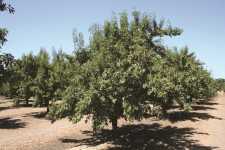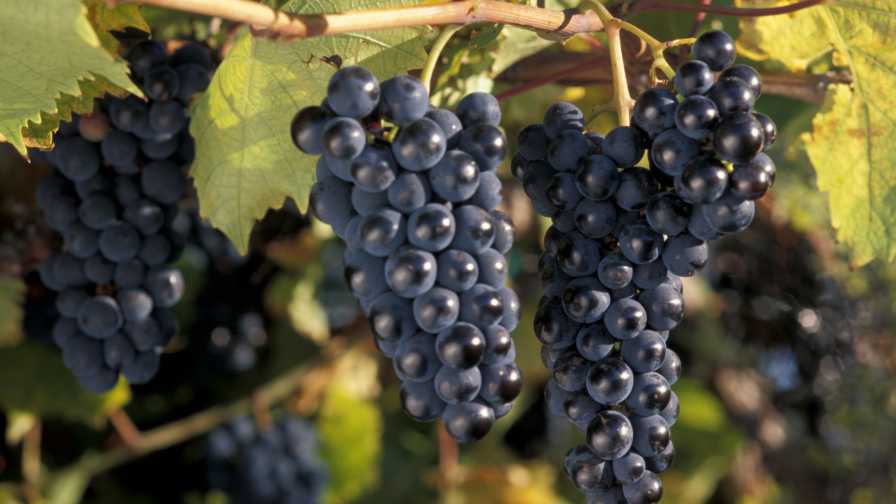Bee-Free Almond Tree

Independence, the almond variety so named because it is self-fertile and thus independent of honeybees, really began to be developed back in the 1980s. Grant Zaiger, who runs Zaiger Genetics of Modesto, CA, along with his father Floyd, brother Gary, and sister Leith Gardner, says their first self-fertile almond, the “All-in-One,” was patented in 1988. But the All-In-One produced too many doubles, so it was back to the drawing board.
In the mid-’90s they made a cross of the All-In-One with a numbered variety, 2168, and the Independence was born, says Grant, showing off his first Independence orchard, now in its sixth leaf. The nuts have now been sold commercially for two years, though the first was on a more limited basis. “It’s tough to say what the yields are because everyone’s always taking samples out of here,” he says with a laugh, gesturing at the trees that are planted right along a Modesto street.
The Zaigers clearly believe they have a winner. Says Floyd: “Just the fact you don’t need bees can save the grower 25% of his cost per year. And I also really like that it almost cuts dust by 50% because you don’t have to sweep and pick up the nuts twice, as you would for the Nonpareil and the pollinator.” Grant nods: “That’s a big deal now in this environment.”
Nonpareil Similarity
Speaking of the industry’s flagship variety, the Nonpareil, Grant believes it compares favorably. The nuts have a similar light color, size, and taste, so close that the Independence fetched nearly the same price last year ($1.90 a pound) as the Nonpareil ($2.10). However, the Independence doesn’t require a pollinator, and prices for those nuts top out below Independence, so the grower’s net average needs to be taken into account. In addition, Grant says the Independence has a production advantage over the Nonpareil. “When the Nonpareil goes up in the number of nuts, the average size of the nuts drops,” he says. “With this nut, the size stays up.”
Yet another advantage of Independence is in orchard siting, says Grant. “You can have a relatively remote orchard because you don’t have to worry about a relative lack of bees in the area,” he says. “Also, a lack of bees won’t cause any inconsistent cropping.”
But despite the advantages, Grant scoffs at the notion that Independence will dominate the industry. “Some of the beekeepers are spreading all sorts of rumors, but they don’t have to worry about the demise of the industry because there are too many growers who will be Nonpareil growers until they die,” he says. “Besides, we’re not done. I’ll have another, better almond variety in the future. Check back with me in 10 to 12 years.”









